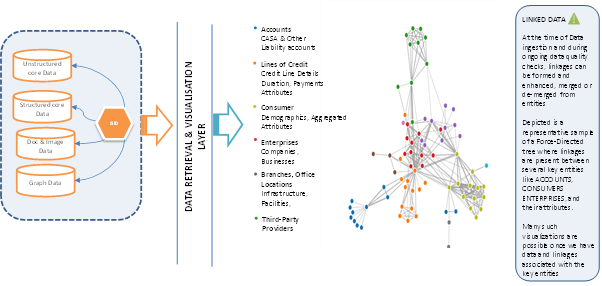In the world of data, nothing is more precious than the management and nurturing of all that is received and all knowledge that is gained from it. The pursuit of data has been an eternal quest for centuries and, in the recent decade, technology has fueled the democratization of data management at a scale that has never been seen before. The quantity and velocity of data and information that flows through our digitally enabled systems today are staggering. Every touchpoint an individual has with a device generates a whole set of data. Initially, there was a lot of focus on capturing and storing all data for the future. This is still true, but, in the evolving world, it is the intelligence derived out of that data, that is key. Data privacy laws will make it difficult over time to store personal information without informed consent, but there is along way for that to happen. Meanwhile, with velocity, comes expectation. Decisions need to be made with data available in the present, and not from detailed analysis of data from the past. In this context, there is a need for a framework that encompasses data in flow and data at rest.
Konsultera’s founders bring experience from large data ecosystems that span several domains. In every domain, however, the need is exactly the same. Good, qualified, data and the ability to process this data at scale that can scale horizontally, However, it is still necessary to put in the basic principles in place, to ensure this large set of information can be managed and processed effectively. In a data ecosystem, there is no size limit to start and virtually no end. We can start small and expand as time and budgets permit. The recommendation Konsultera offers, regardless of the size, focuses on the outcome and the use-case and subsequent deployment of your data model to meet those outcomes. Choose technology as you see fit, but follow the principles that span technology. To this end, we designed a framework of the four D’s or, as we call it, the 4D Framework for the Data Ecosystem.

The 4D framework is designed to help any organization organize data right from ingestion to governance, from discovery to product creation, from insight to deployment. Every organization with this framework, stands to gain with benefits accruing almost immediately post deployment.
We introduce a concept called the Global ID (GID), which is a single link for each defined entity in the system. In a banking context, we can assume Individuals, Companies, CASA accounts, Credit Accounts, Locations and several other such key nodes to be present with their own GIDs. Associated with each GID, is a set of attributes that define the characteristics of that entity. Each of the types of GIDs can be interconnected with ‘Relationships’ and these relationships could have their own attributes and so on. This creates a web of data, where data starts to make sense by defining relationships and each chain represents linkages, much like our own life and relationships. The interaction and the intelligence that we derive from such relationships start to make more and more sense over time. We start to get better insights and see it with greater depth than a single planar view that would otherwise define an entity and its attributes.

The illustration above indicates how data, converged around a GID, can appear to be a constellation when visualized correctly. Again, to bring in the 4D framework and its relevance, the organization and governance of this data is the key to bringing insights to the business. A data ecosystem is meant to help grow and protect the business.
Konsultera is spearheading a new form of thinking for the data and analytics business. Konsultera’s teams are in the process of continuously working with customers to build platforms that sustains and support technology-enabled digitization and subsequent use of data ecosystems enabled by AI to generate profitable business outcomes.

